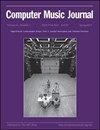IF 0.4
Q4 COMPUTER SCIENCE, INTERDISCIPLINARY APPLICATIONS
引用次数: 0
摘要
约瑟夫·汉森·克瓦贝纳·恩克提亚(1921年6月22日生)来自加纳的杰出非洲音乐学者,他在20世纪40年代的实地研究以各种方式奠定了非洲音乐学术的基础,早于民族音乐学在美国成为一门学科。他是一位多产的作家、音乐教育家和作曲家,他关于非洲音乐学关键主题的出版物对非洲研究的跨学科领域至关重要。在Asante Mampong出生和长大,Nketia受到了两个知识体系世界的指导:他的传统音乐环境产生并维持了对土著系统的终身兴趣,他在欧洲接受的正规教育为国内和世界各地的学术研究提供了空间。在Akropong-Akwapem的长老会培训学院,他被Robert Danso和Ephraim Amu介绍到欧洲音乐的元素。后者在非洲习语中的合唱和器乐给Nketia留下了持久的印象,因为他在自己的书面作品中将传统音乐中的口头作曲惯例与欧洲古典音乐的作曲模式结合起来。从1944年到1949年,Nketia在伦敦大学亚非学院学习现代语言学。他的导师是著名的伦敦语言学学派的先驱约翰·费斯。他还进入三一音乐学院和伯克贝克学院学习西方音乐、英语和历史。他在语言学和历史方面的研究成果是本参考书目中引用的经典文本的出版物。1952年至1979年,恩凯蒂亚在加纳大学担任多个职位,包括社会学研究员、表演艺术学院创始主任和非洲研究所第一位非洲人主任;他和Mawere Opoku一起成立了加纳舞蹈团。在此期间,他开始对加纳各地的音乐传统进行广泛的实地研究和记录。他的学生和学校为他的学术出版物提供了创造性的渠道,他培养了几代加纳人。1958年,在洛克菲勒基金会的资助下,恩克蒂亚得以在茱莉亚音乐学院和哥伦比亚大学与亨利·考威尔等人一起学习作曲和音乐学,他走出校门后坚信自己的作品应该反映出他的非洲身份。此外,他与柯特·萨克斯、梅尔维尔·赫斯科维茨、艾伦·梅里亚姆和曼特尔·胡德交往,这使他成为民族音乐学形成时期知识分子辩论的中心。从1979年到1983年,Nketia被任命为加州大学洛杉矶分校民族音乐学研究所的教员;从1983年到1991年,他在匹兹堡大学担任梅隆大学主席,在那里他培养了几代美国人和非洲人。恩凯蒂亚回到加纳,创办了非洲音乐舞蹈国际中心(1992-2010),并担任阿克罗菲-克里斯塔勒神学研究所的首任院长(2006-2016)。Joseph Hanson Kwabena Nketia于2019年5月4日在阿克拉去世,加纳政府为其举行了国葬。本文章由计算机程序翻译,如有差异,请以英文原文为准。
J.H. Kwabena Nketia
Joseph Hanson Kwabena Nketia (b. 22 June 1921–d. 13 March 2019) from Ghana was the preeminent scholar of African musics, whose field research in the 1940s in varied ways formed the foundation of music scholarship in Africa and predated ethnomusicology as an academic discipline in the United States. A prolific writer, music educator, and composer, his publications on key topics in African musicology are pivotal to the transdisciplinary field of African studies. Born and raised in Asante Mampong, Nketia was tutored in two worlds of knowledge systems: his traditional musical environment generated and sustained a lifelong interest in indigenous systems, and his European-based formal education provided the space for scholarship at home and around the world. At the Presbyterian Training College at Akropong-Akwapem, he was introduced to the elements of European music by Robert Danso and Ephraim Amu. The latter’s choral and instrumental music in the African idiom made a lasting impression on Nketia as he combined oral compositional conventions in traditional music with compositional models in European classical music in his own written compositions. From 1944 to 1949, Nketia studied modern linguistics in SOAS at the University of London. His mentor was John Firth, who spearheaded the famous London school of linguistics. He also enrolled at the Trinity College of Music and Birkbeck College to study Western music, English, and history. The result of his studies in linguistics and history are the publications of classic texts cited in this bibliography. From 1952 to 1979, Nketia held positions at the University of Ghana including a research fellow in sociology, the founding director of the School of Performing Arts, and the first African director of the Institute of African Studies; and together with Mawere Opoku, he established the Ghana Dance Ensemble. This was a time that he embarked on extensive field research and documentation of music traditions all over Ghana. His students and the school provided creative outlets for his scholarly publications as he trained generations of Ghanaians. In 1958, a Rockefeller Foundation Fellowship enabled Nketia to study composition and musicology at Juilliard and Columbia with the likes of Henry Cowell, and he came out convinced that his compositions should reflect his African identity. Further, he interacted with Curt Sachs, Melville Herskovits, Alan Merriam, and Mantle Hood, which placed Nketia at the center of intellectual debates in the formative years of ethnomusicology. From 1979 to 1983, Nketia was appointed to the faculty of the Institute of Ethnomusicology at UCLA; and from 1983 to 1991, to the Mellon Chair at the University of Pittsburgh, where he trained generations of Americans and Africans. Nketia returned to Ghana and founded the International Center for African Music and Dance (1992–2010) and also served as the first chancellor of the Akrofi-Christaller Institute of Theology (2006–2016). Joseph Hanson Kwabena Nketia died in Accra and was honored with a state burial on 4 May 2019 by the Government of Ghana.
求助全文
通过发布文献求助,成功后即可免费获取论文全文。
去求助
来源期刊

Computer Music Journal
工程技术-计算机:跨学科应用
CiteScore
1.80
自引率
0.00%
发文量
2
审稿时长
>12 weeks
期刊介绍:
Computer Music Journal is published quarterly with an annual sound and video anthology containing curated music¹. For four decades, it has been the leading publication about computer music, concentrating fully on digital sound technology and all musical applications of computers. This makes it an essential resource for musicians, composers, scientists, engineers, computer enthusiasts, and anyone exploring the wonders of computer-generated sound.
Edited by experts in the field and featuring an international advisory board of eminent computer musicians, issues typically include:
In-depth articles on cutting-edge research and developments in technology, methods, and aesthetics of computer music
Reports on products of interest, such as new audio and MIDI software and hardware
Interviews with leading composers of computer music
Announcements of and reports on conferences and courses in the United States and abroad
Publication, event, and recording reviews
Tutorials, letters, and editorials
Numerous graphics, photographs, scores, algorithms, and other illustrations.
 求助内容:
求助内容: 应助结果提醒方式:
应助结果提醒方式:


